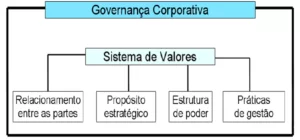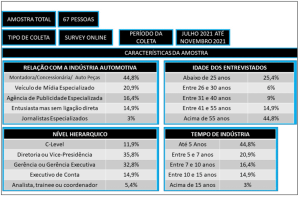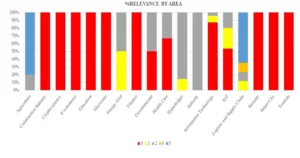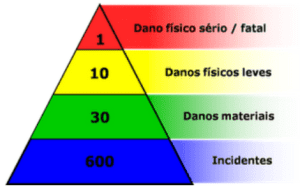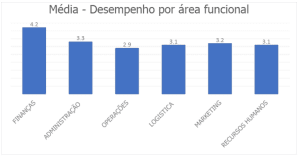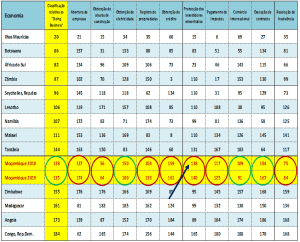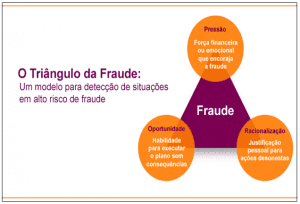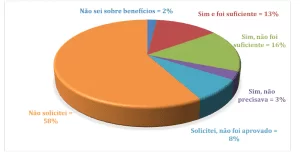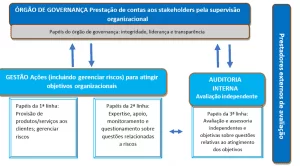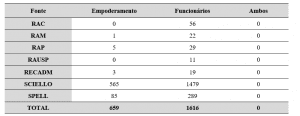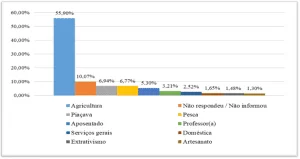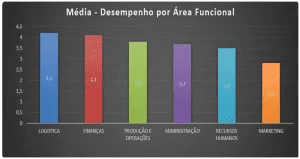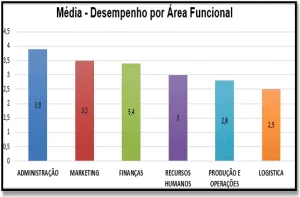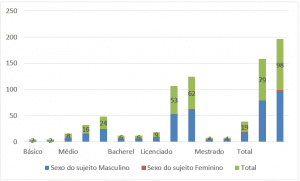BARBOSA, Daniel de Sá [1]
CHIAMULERA, Felipe [2]
CAMPOS, Helnatã Duarte [3]
BORGES, Davi de Souza [4]
CORDEIRO, Jafé Praia Lima [5]
FRANÇA, Fabiano Franco [6]
THOMÉ, Ygor Aroucha [7]
BARBOSA, Daniel de Sá; et. al. Attestation of Technical Capacity in Federal Bids. Multidisciplinary Scientific Journal. Edition 06. Year 02, Vol. 01. pp 566-590, September 2017. ISSN:2448-0959
SUMMARY
The certificate of technical-professional capacity is not confused with the certificate of technical-operational capacity, since this refers to the structural attribute of the organization and its purpose is to measure the management capacity of the company, both in technical expertise – from services previously performed satisfactorily – as well as the ability to manage their employees and / or service providers; it is intrinsic to the person of the technical professional and does not conform to the technical-operational acquis of the legal entity, in view of dealing with strictly technical issues, such as: experiences in related services previously performed. It is important to note that there is no legal support for the non-authorization of the company by the administration in bidding bids, under the prism that it does not have registration in professional council, since such requirement is mandatory only with regard to the certificate of technical capacity -professional. Also, the requirement, regarding the certificate of technical and professional capacity, of discharge of registration in the technical council of the profession is irregular, since this requirement does not find legal support, according to TCU's reiterated jurisprudence. As regards the permanent framework for the certificate of technical and professional capacity, it is to be noted that the case law of the federal court of law is already peaceful in the understanding that it is not necessarily – at the time of delivery of its proposal, that the company has to be able to perform with this contract governed by civil law or a declaration that the professional will integrate the framework of the bidder as technical manager, if the company is contracted. In another turn, important change brought, in its bulge, Normative Instruction No. 5/2017, which revoked Normative Instruction No. 2/2008, since this has been elaborated in more detail on the criteria for acceptance of the certificates of technical capacity in the stage of the bidding procedures.
Keywords: Bidding, Qualification, Attestation of Technical Capacity.
1. INTRODUCTION
The direct constitutional basis for the requirements of technical qualification, is understood as this: attestation of technical-operational capacity and attestation of technical-professional capacity, is contained in art. 37, inc. XXI, of the Federative Constitution of Brazil, 1988.
Starting from this principle, we will try to approach, in a very didactic but not exhaustive way, the infraconstitutional postulate that legislates about the general rules of licitations and administrative contracts, that regulate art. 37, inc. XXI, of the Political Charter of the Republic of 1988.
Specifically we will be addressing art. 30, inc. II, and inc. I of paragraph 1 of Law No. 8.666 / 93, due to the fact that among the most diverse entities that promote tenders within the Federal Government, there are somewhat nebulous doubts regarding the differences between the above-mentioned certificates, before the presidential veto referring to inc. II of § 1 of the infraconstitutional law in question, thus causing a certain stir in the juridical and doctrinal world.
Normative Instruction No. 5, dated May 26, 2017, which revoked Normative Instruction No. 2, of April 30, 2008, both edited by the Ministry of Planning, Development and Management – a comparative map, which the current norm has altered, as well as the one that it brought of innovation to settle the dubious understandings – targets of several demands arbitrated by the Court of Auditors of the union.
Requirements for registration in professional council of attestation of technical-operational capacity, permanent professional staff, discharge of registration in the professional council, judgment of application of diligence in the institutes of certificates, will also be objects of approach of this scientific article.
2. PROOF OF TECHNICAL CAPACITY
The eminent doctrine Marçal Justen Filho in his work Course of Administrative Law states, in a peremptory way, that:
The technical qualification is the documentary evidence of the technical suitability for carrying out the object of the tendered contract, demonstrating previous experience in the execution of a similar contract and the availability of the necessary personnel and equipment. (JUSTEN FILHO, 2015)
Thus, we understand that such measures are intended to safeguard the public administration so that the service contracted hereafter is executed in a reliable manner to the one advocated by the convening instrument, in accordance with the principle of continuity of public service.
When it comes to technical qualification, it is a neuralgic point of the bidding, since the federal constitution in its article 37, section XXI, does not prohibit the requirements of technical qualification, however it represses unnecessary or inadequate requirements, let us see:
Art. 37, XXI – except for the cases specified in the legislation, works, services, purchases and disposals will be contracted through a public bidding process that ensures equal conditions to all competitors, with clauses that establish payment obligations, maintaining the effective conditions of the proposal , under the terms of the law, which will only allow the technical and economic qualification requirements indispensable for ensuring compliance with the obligations. (BRAZIL, 1988). (we grimace)
It remains clear that the text referred to in the political letter is therefore a rule of limited effectiveness, since it depends on supervening law to regulate it. In this wake, therefore, the infra-constitutional protection under the aegis of art. 30, item II, paragraph 1 and item I, of Law 8,666 / 93, which governs bids and administrative contracts:
Art. 30. The documentation relating to the technical qualification shall be limited to:
(…)
II – proof of suitability for performance of relevant and compatible activity in terms of characteristics, quantities and deadlines for the purpose of the bidding, and indication of the appropriate facilities and equipment and technical personnel available to carry out the object of the bid, as well as the qualification of each of the members of the technical team who will be responsible for the work;
(…)
Paragraph 1. The proof of aptitude referred to in item II of the caput of this article, in the case of permanent bids for works and services, shall be made by certificates provided by legal or public entities, duly registered in the competent professional bodies, limited to requirements to:
I – technical and professional qualification: proof of the bidder's possession of a certificate of technical responsibility for the execution of a work or service in his permanent staff, on the date scheduled for submission of the proposal, a professional of a higher level or another duly recognized by the competent authority. These characteristics are limited to those portions of greater relevance and significant value of the object of the bidding, subject to the requirements of minimum quantities or maximum deadlines; (BRAZIL. Law No. 8.666 / 93).
This is notoriously noteworthy that the regulation of the General Law of biddings has brought more security with regard to the contracting of works and services within the scope of the federal public administration, since, if constant in the bidding rules, bidding companies must present a proven technical qualification by means of certificates issued by legal entities governed by public or private law, thus proving that the company competing with the competition has the ability to perform the services and / or works that are the object of the bidding.
Although Law 8,666 / 93 covers important matters to prove suitability for relevant activity and compatible with the object of the bid, such as: characteristics, quantities and deadlines; she, the Law, tackled these issues in a laconic manner and did not establish specific criteria, that is, objective criteria for acceptance of the certificates.
With the purpose of stipulating criteria which would be used in the characteristic requirements, quantities and deadlines – included in the inc. II, art. 30, of the Supradite Law, the Secretary of Logistics and Information Technology of the Ministry of Planning, Budget and Management – SLTI / MPOG, issued Normative Instruction No. 2 of April 30, 2008, amended by Normative Instruction No. 6 of 23 of December 2013, in which the text of art. 19, below:
Paragraph 5 In the hiring of continuous services, the Public Administration may require from the bidder: (Included by Normative Instruction nº 6, of December 23, 2013)
I – proof that it has performed compatible outsourcing services in quantity with the object tendered for a period of not less than 3 (three) years; and (Included by Normative Instruction No. 6, of December 23, 2013)
(…)
Paragraph 6 For the proof of the minimum experience of 3 (three) years provided for in item I of paragraph 5, the sum of attestations shall be accepted. (Included by Normative Instruction nº 6, of December 23, 2013)
§7 In the hiring of continuous services with more than 40 (forty) posts, the bidder must prove that he has executed a contract (s) with a minimum of 50% (fifty percent) of the number of jobs to be contracted. (Included by Normative Instruction No. 6, dated December 23, 2013 and rectified according to the wording published on page 86 of Section 1 of DOU nº 68, of April 9, 2014)
Paragraph 8. When the number of jobs to be contracted is equal to or less than forty (40), the bidder must prove that he has executed contract (s) with a minimum of 20 (twenty) posts. (Included by Normative Instruction No. 6, dated December 23, 2013 and rectified according to the wording published on page 86 of Section 1 of DOU nº 68, of April 9, 2014)
§9 Only attestations issued after the conclusion of the contract will be accepted or if at least one year has elapsed from the beginning of its execution, unless it is executed to be executed in a shorter term. (Included by Normative Instruction nº 6, of December 23, 2013)
§10. The bidder must provide all the necessary information to prove the legitimacy of the requested certificates, including, among other documents, a copy of the contract that supported the contracting, the contractor's current address and the place where the services were provided. (Included by Normative Instruction nº 6, of December 23, 2013)
§11. Justifiably, depending on the specificity of the object to be tendered, the technical and economic-financial qualification requirements in this article may be adapted, suppressed or added to others considered important for contracting, subject to the provisions of arts. 27 to 31 of Law No. 8,666 of 1993. (Included by Normative Instruction nº 6, of December 23, 2013)
§12 In order to prove the provisions of paragraphs 7 and 8, the sum of attestations proving that the bidder manages or managed outsourcing services compatible with the object tendered for a period of not less than three (3) years (Included by Instruction Normative nº 3, of June 24, 2014) (IN 02, 2008)
The edition of IN 2/2008, highlighted above, addressed a number of doubts, both from bidders and mainly from public agents that operate bids within the federal government. However, a number of other doubts also emerged, which culminated in several judgments handed down by Court of Auditors – TCU, which we will address later.
2.1 Attestation of Technical-Operational Capacity in the view of doctrine and jurisprudence
With the presidential veto to inc. II of paragraph 1 of art. 30, of Law 8,666 / 93, which dealt with the certificate of technical-operational training, a great stir settled in the doctrinal and juridical environment, which debated a lot about the legality of said certificate before its veto.
In view of the imbroglio, some legal precedents brought to the court the need for proof, by bidder, of a certificate of technical-operational capacity, we are judged by the Superior Court of Justice (STJ), which admitted the requirement in bidding for both the technical- as a certificate of technical-operational capacity:
ADMINISTRATIVE LAW. REQUIREMENT OF TECHNICAL QUALIFICATION IN BIDDING.
It is a lawful clause in a bidding notice requiring that the bidder, in addition to having in his technical collection, a professional who has conducted an engineering service similar to that in the bidding, has already acted in a similar service. This understanding is in line with the specialized doctrine that distinguishes professional technical quality from operational technical quality and the case law of the STJ, whose Second Panel has established the understanding that it does not prejudice the equality between bidders, nor the ample competitiveness among them, the conditioning on the previous experience of the competitors in the scope of the object tendered, under the pretext of demonstrating technical qualification, in terms of art. 30, inc. II, of Law no. 8,666 / 93 (REsp 1,257,886-PE, judged on 11/3/2011). In addition, other devices of the same art. 30 allow this inference. Thus, Paragraph 3 of art. 30 of Law 8.666 / 1993 states that there is a possibility that proof of technical qualification may be provided through similar services, with the same or higher technical and operational complexity. Furthermore, § 10 of art. Article 30 of the same law stresses the indication of the technical professionals responsible for the engineering services as a management guarantee. RMS 39,883-MT, Rel. Min. Humberto Martins, judged on 12/17/2013.
The doctrine also communes with the same understanding of the upper court:
What is evident, along the legislative course of the technical qualification in qualification, is the solid trend that culminates in the provisions of Law 8.666 / 93, in order to require the bidder to prove their suitability for the achievement of the object through previous performance certificates , "Relevant and compatible" with that object. How would this pertinence and compatibility be measured? Logically – according to the letter of the law – the extent to which the characteristics of the previous activity were similar to those of the object and the quantities were approximate, as well as the deadlines for compliance and enforcement. In initial consideration, there appears to be no legal obstacle to documentary presentation of these specifications. Jurisprudence had always understood this before the abovementioned veto. The solid reality of the presidential veto, however, persists with the so-called "operational capacity" of the bidder, which vetoes the requirement to prove specific operational suitability in the name of the bidder. (MOTA, 2005)
It is a fact that this dissidence is now overcome, given that, despite the maintenance of the presidential veto, the unified understanding between doctrine and jurisprudence is settled, even with the consent of the court of accounts of the union:
As pointed out by the instruction, this Court has evolved its jurisprudence to admit that it is possible – and even essential for ensuring compliance with the obligation – to delimit the characteristics that must be present in the previous experience of the bidder regarding technical-operational and technical-professional capacity 1.214 / 2013 and 3.070 / 2013 of the Plenary). (JUDGMENT TCU 534/2016)
2.2 Differences between technical and operational capacity and technical and professional capacity
The Court of Auditors of the union – TCU, made a very important distinction between the two technical capacities, objectively pointing out their differences and purposes:
The technical qualification covers both the business experience and the experience of the professionals who will perform the service. The first would be the technical-operational capacity, encompassing the company's own attributes, developed from the performance of business activity with the combination of different economic factors and a plurality of people. The second is called the technical-professional capacity, referring to the existence of professionals with technical assets compatible with the work or engineering service to be tendered. (JUDGMENT TCU 1,332,2006)
It is noted that there is a substantial difference between the two types of technical capacity, in the technical-operational capacity, it refers to the structural attribute of the company, ie it is easy to understand that the aforementioned certificate is intended to measure the management capacity of the company company, as much in the technical expertise, coming from services previously executed in a qualitative way (not counting anything that will discourage its conduct), as well as in the capacity to manage its employees and / or service providers.
In this wake, and with the purpose of preventing the bidders of the federal public administration from exacerbating the technical qualifications of the companies, restricting the competitivity of the event (which, in primary cognition, fulfills the basic principle of bidding, is that the Federal Court of Accounts has adopted in its judgments mechanisms to mitigate the recurring constraints to competitiveness in certain convening instruments:
As a consequence, Dnit should be required to refrain from requiring, in the technical authorization, documents other than those in art. Law no. 8.666 / 93, avoiding failures such as that found in Competition No. 431 / 2005-0, which unduly demanded the Term of Commitment and the Model Approval Ordinance issued by Inmetro (JUDGMENT TCU 1529, 2006)
In this context, another is not the understanding of the Superior Court of Justice – STJ:
ADMINISTRATIVE – PUBLIC BIDDING – SERVICES OF READING OF HYDROMETERS AND DELIVERY OF ACCOUNTS – NOTICE – REQUIREMENT FOR PREVIOUS EXPERIENCE PROOF – TECHNICAL TRAINING – ARTICLE 30, PARAGRAPHS 1, I, AND § 5 OF LAW No. 8.666 / 93 – SPECIAL APPEAL NOT KNOWN . It is true that the Administration can not under any circumstances make demands that frustrate the competitive nature of the event, but rather guarantee a wide participation in the bidding contest, allowing the greatest possible number of competitors, provided they have the technical and economic qualification to guarantee compliance of obligations. […] (STJ – REsp 361736 / SP, – Franciulli Netto – Second Class – DJ 31.03.2003 page 196)
In another twist, as the competitive nature of bidding is ensured, the control bodies likewise create mechanisms to safeguard the public administration of companies without structures that enter the public service in the eagerness to venture to gain experiences, which almost always results in contractual termination for total or partial non-performance of the services, causing, in many cases, damage to the administration, since the services – when executed, are of a quality much inferior to the minimum that appears in the convening instrument.
Aiming at the usual events of discontinuity of service in the scope of the federal public administration by imperfect and negligent companies, the Audit Court of the union, after several judgments, issued in 2011 the Summary 263, which allows the requirement of proof of minimum quantitative in works or services.
In order to prove the technical-operational capacity of the bidders, and at the same time that it is limited to the portions of greater relevance and significant value of the object to be contracted, it is legal to require verification of the execution of minimum quantitatives in works or services with similar characteristics , and this requirement must be proportionate to the size and complexity of the object to be executed. (TCU, SÚMULA 263/2011)
Notwithstanding the settled understanding of the TCU regarding the legality of the requirement of the minimum quantitative, a gap was still open: what would be minimum quantitative?
Faced with the subjectivism that generated many representations in the court, the TCU objectively delimited what would be minimal quantitative, let us see:
The requirement to prove the execution of minimum quantitatives in works or services with similar characteristics, in order to attest the technical-operational capacity, should keep proportion with the size and complexity of the object and should fall simultaneously on the most important and significant value. As a rule, the minimum required quantities must not exceed 50% of the budget forecast, except under special conditions and duly justified in the bidding process. (JUDGMENT TCU 244/15 – PLENARY) (emphasis added)
Such an understanding now seems to have been superseded by the notorious court of accounts:
It is irregular the requirement of a technical capacity certificate with a minimum quantity of more than 50% of the quantity of goods and services to be contracted, except in cases where the specificity of the object recommends and there is no compromise to the competitiveness of the event, a circumstance that must be duly justified in the bidding process. (JUDICIAL TCU 3.663 / 2016)
With regard to services of a continuing nature, such as: cleaning, support and surveillance, the Federal Court of Audit understands that, since these services are of low complexity, the core of attesting to the technical-operational capacity is not linked in the experience of the company that is a specialist in the execution of the object of the bidding in which it is listed as a bidder, but is only in its capacity for manpower management, regardless of whether the similarity of the activity follow-up that it develops is in line with the object of the bid.
For a better explanation, we quote an excerpt from Judgment 1214/2013 – TCU:
- (…) Therefore, the content of the certificates of technical capacity must be sufficient to guarantee to the Administration that the contractor will be able to execute the intended object. Such fitness may refer to several aspects.
- At this point, the main discussion to be faced seems to lie – what kind of aptitude should be required for the execution of contracts for services of a continuous nature, in which the assignment of labor is characterized.
- Companies that provide outsourced services, as a rule, are not specialists in the service properly, but in the administration of the workforce. It is a market reality to which the Administration must adapt and adapt its contracts. It is increasingly rare to enter into agreements with companies that specialize only in cleaning, or driving, or in reception. The contractors provide several types of service, sometimes in the same contract, so that they acquire skills in the management of the employees who provide the services, not the technique of executing them.
- While it is very likely that management's own demands have shaped this behavior of companies, discussing the theme or adherence of the model to the ideal conception of outsourcing of services does not prove useful.
- What matters is to realize that the ability of contractors in the management of labor in these cases is really much more relevant to the Administration than the technical aptitude for the execution of the services, since these usually present little complexity. That is, in these contracts, given the nature of the services, it is in the interest of the Administration to ensure that the contractor is capable of recruiting and retaining qualified personnel and honoring the labor, social security and fiscal commitments. It is a very different situation from a contract involving technical complexity, such as a work, or a contract for the supply of goods, where capacity can be measured by reference to the size of the object – which serves very well the parameter of 50 % usually adopted. (JUDGMENT 1.214 / 2013 – TCU). (we grimace)
In view of the aforementioned ruling, there is a concrete case that clearly portrays the current understanding that prevails among the ministers of the maximum court of accounts, which occurred in the Electronic Bidding 10/2015, whose object is the hiring of a company specialized in the provision of outsourced services in the categories of Executive Secretary, Bilingual Executive Secretary and Secretariat Technician, to assist the administrative units of the Ministry of Sports.
Although the purpose of the aforementioned electronic auction was the hiring of a company specializing in the provision of outsourced services to bilingual executive secretaries, we have settled the understanding by the TCU in the context of this court of accounts, culminating in Judgment 553/2016 :
(…) it is verified that at least one of the certificates presented by the representative – the certificate issued by the Urban Cleaning Service of the Government of the Federal District, accompanied by a copy of the signed contract and its additives – would, in principle, of technical qualification, in order to demonstrate the ability of the bidder to manage labor in the required minimum quantity. (JUDGMENT TCU 553/2016)
Let us see that there is no similarity between the activities pertaining to the objects "bilingual executive secretaries and Urban Cleaning Service", however the supreme court of accounts understands that the preponderant in the analysis of habilitation is the capacity of management of labor of the company, understanding which has been adopted as a practice by most of the federal public administration bodies.
2.3 Attestation of technical-operational capacity in services of a continuing nature
Because it is something more common in the contractions of the federal public administration, special attention deserves the services of a continuing nature.
On September 25, 2017 – published by the Ministry of Planning, Development and Management – Normative Instruction No. 5, of May 26, 2017, came into force after 120 days of vacatio legis, that is, a period of vacancy of the law until entry into force; therefore, this normative instruction totally revoked Normative Instruction 2, dated April 30, 2008, also issued by said Ministry.
Let us see in the table below the main differences between the two Norms:
| Comparative table of the main differences between Normative Instruction No. 5/2017 (current) and Normative Instruction No. 2/2008 (revoked) referring to the Attestation of technical capacity | |||
| Normative Instruction nº 5/2017 | Normative Instruction nº 2/2008 | ||
| 1 | 10.3. The provisions on technical qualification shall provide that: | Art. 19 (…) | |
| 2 | a) the attestations or declarations of technical capacity presented by the bidder must demonstrate suitability for performance of relevant and compatible activity in characteristics, quantities and deadlines for the purpose of which the bidding process handles; and | XXV (…)
a) the attestations or declarations of technical capacity presented by the bidder must demonstrate suitability for performance of relevant and compatible activity in characteristics, quantities and deadlines for the purpose of which the bidding process handles; |
|
| 3 | b) The technical-operational capacity certificates shall refer to services rendered in the scope of their main or secondary economic activity specified in the current social contract. | b) technical-operational capacity certificates shall refer to services rendered in the context of their principal or secondary economic activity specified in the current social contract; | |
| 4 | 10.6. In the contracting of continuous service, for the purpose of technical-operational qualification, the Public Administration may require from the bidder: | Paragraph 5 In the hiring of continuous services, the Public Administration may require the bidder: | |
| 5 | b) proof that has already been executed compatible object, in time, with what is being tendered, by proving minimum experience of three years in the execution of an object similar to that of the contracting, being able to be accepted the sum of attestations; | I – proof that it has performed compatible outsourcing services in quantity with the object tendered for a period of not less than 3 (three) years; and | |
| 6 | c) in the case of contracting services by job: | ||
| 7 | c.1. when the number of jobs to be hired is more than 40 (forty) jobs, the bidder must prove that he has performed a contract with a minimum of 50% (fifty percent) of the number of jobs to be hired ; | Paragraph 7. In the hiring of continuous services with more than forty (40) posts, the bidder must prove that he has executed contract (s) with a minimum of 50% (fifty percent) of the number of jobs to be contracted. | |
| 8 | c.2. when the number of jobs to be hired is equal to or less than forty (40), the bidder must prove that he has performed a contract (s) in number of positions equivalent to that of the hiring. | Paragraph 8 When the number of jobs to be contracted is equal to or less than forty (40), the bidder must prove that he has executed contract (s) with a minimum of 20 (twenty) posts. | |
| 9 | 10.6.1. Entries related to successive periods that are not continuous, for the purposes of the proof referred to in sub-item 10.6 "b" of sub-item 10.6 above, are not allowed, and there is no requirement that the three years be uninterrupted. | Paragraph 6 For the proof of the minimum experience of 3 (three) years provided for in item I of paragraph 5, the sum of attestations | |
| 10 | 10.7. In the case of contracting services by job (sub-item 10.6 "c"), the sum of attestations proving that the bidder manages or managed outsourcing services compatible with the object tendered for a period of not less than three ) years; | § 12 In order to prove the provisions of paragraphs 7 and 8, the sum of the certificates proving that the bidder manages or managed outsourcing services compatible with the object tendered for a period of not less than three (3) years
|
|
| 11 | 10.7.1. Entries related to non-continuous successive periods are allowed to be presented for the purpose of proving what sub-item 10.7 above is about, and there is no requirement that the three years be uninterrupted. | ||
| 12 | 10.8. Only attestations issued after the conclusion of the contract will be accepted or if at least one year has elapsed from the beginning of its execution, unless it is signed to be executed in a shorter term; | § 9 Only certificates issued after the conclusion of the contract will be accepted or if at least one year has elapsed from the beginning of its execution, unless it is executed to be executed in a shorter term. | |
| 13 | 10.9. The presentation of different attestations of services performed concomitantly may be admitted for purposes of proving the minimum quantity of the service, since this situation is equivalent, for purposes of proving technical-operational capacity, to a single contracting; | ||
The highlights in yellow were the essays that already existed in the revoked standard, however they were improved (altered); already in the highlights in blue was what the current norm brought back, is understood new (here) not as something unpublished, but as something that specified in a much more detailed way some gaps left by IN 2/2008. Based on this principle, we highlight the most important ones: in line 8 of the above table, IN 2/2008, with regard to the contracting of less than 40 service stations, required that the bidders, when submitting the certificates, present them with contractual performance in a minimum number of 20 posts, which sounded rather disproportionate, since in many tenders several federal government agencies tended to bid for no more than 10 posts, thus obligatorily possessing a technical capacity of at least 20 posts; however with the advent of IN 5/2017, in biddings with less than 40 posts, bidders must now prove that they have performed a contract with a number of posts equivalent to that of hiring, which seems to us to be much more reasonable.
In line 9, there was a very pertinent detail, since the previous rule accepted the sums of the certificates, but it did not express whether they could be added in uninterrupted or uninterrupted periods, causing great excitement in the bids. In this way, it has ruled the current rule on this issue, expressing that it is now possible to accept certificates of successive non-continuous periods, discharging that such periods be uninterrupted.
The same line of thought is presented in line 11 of the table, in which the bidder must present, through a certificate, that he manages or managed, for a period of not less than three years, outsourcing services compatible with the object of the bidding, for this purpose, the sum of successive and non-continuous periods, and there is no requirement that the periods required in the notice be uninterrupted.
This put, we understand that Normative Instruction No. 5/2017 is being of great value in order to protect more the federal public administration, thus, giving more dynamicity in the licitations and contracting of the entities, which in a direct way also benefits the suppliers and society.
2.3.1 Attestation of technical-operational capacity registered in the professional council
It is settled the understanding that only the professional must have registration in the council of their respective profession, this post, it is believed to be peaceful the understanding in the Court of Auditors of the union of which is irregular the rejection of attestation of technical-operational capacity under the argument of mandatory registration in professional council, see:
When assessing the technical capacity of legal entities, it is irregular the rejection of attestations of technical-operational capacity that are not registered in the professional council. The requirement of certificates registered in the competent professional entities should be limited to technical and professional training, which concerns the individuals indicated by the bidding companies.
The registration requirement in the Regional Council of Engineering and Agronomy (CREA) of the certificates of technical-operational qualification has no legal support and is in disagreement with the Judgments of 128/12 – 2ª Câmara, 1,452 / 15 – Plenary and 655/16 – Plenary and Resolution / CONFEA 1,025 / 09. (JUDGMENT TCU 7.260 / 16 – SECOND CHAMBER)
2.4 Attestation of technical and professional capacity
It is necessary to reinforce that the certificate of technical-professional capacity, as we have already discussed in previous paragraphs, is intrinsic to the person of the technical professional and does not have any relevance to the technical-operational acquis of the legal entity, as observed in the Judgment below:
It is not allowed to transfer the technical assets of the individual to the legal entity, for the purpose of proving technical qualification in public bids, since the technical-operational capacity (art. 30, inc. II, of Law 8666/93) is not to be confused with professional technical capacity (art. 30, § 1, inc. I, of Law 8.666 / 93), since the former considers aspects typical of the legal entity, such as facilities, equipment and staff, while the latter relates to the professional who works in the company. (JUDGMENT TCU 2.208 / 16 – PLENARY SESSION)
Well, with regard to the certificate of technical and professional capacity, it is quite true that it deals with strictly professional issues and is intrinsically linked to the professional person and not the company.
This time, we will now discuss the specificities related to the said certificate, under the terms of art. 30, § 1, inc. II:
Art. 30. The documentation relating to the technical qualification shall be limited to:
- 1º The proof of aptitude referred to in item II of the caput of this article, in the case of bids pertinent to works and services, shall be made by certificates provided by legal entities governed by public or private law duly registered in the competent professional entities, limited to the requirements to: (Redaction given by Law No. 8,883 of 1994)
I – technical and professional qualification: proof of the bidder's possession of a certificate of technical responsibility for the execution of a work or service in his permanent staff, on the date scheduled for submission of the proposal, a professional of a higher level or another duly recognized by the competent authority. These characteristics are limited to the portions of greater relevance and significant value of the object of the bidding, with minimum quantity or maximum deadline requirements not being met; (Included in Law 8,883 of 1994)
The core of the aforementioned attestation is in doubt: what would be portions of greater relevance and significant value? For example, this refers to a concrete case of representation with the TCU filed by a bidder who felt deferred in the competition 02/2015, whose object was the hiring of a company to build the University Restaurant and Coexistence Center of the Federal University of the West of Bahia – UFOB.
On the grounds that the notice required minimum amounts to prove the technical and professional capacity of the bidders, he refuted the representative that such a requirement would injure the provisions of art. 30, § 1, inc. I of Law 8,666 / 1993.
Let us see in a tight synthesis the understanding of the most important accounts:
In the present case, the Technical Responsibility Note – ART or Technical Responsibility Record – RRT related to the execution of the services that make up the parcels was required to prove, on behalf of the technical managers and / or members of the technical team who will participate in the work, of the greatest technical relevance and significant value of hiring:
"1 – CIVIL ENGINEER:
a) Coverage in metallic structure – 1,000 m²;
b) Delivery of reinforced concrete – 300 m³;
2 – ELECTRICAL ENGINEER:
a) Electrical network with sheltered substation assembly – 500 KVA;
b) Execution of Logic Network; ".
According to Ufob, the construction of the University Restaurant and Coexistence Center involves a pavilion with approximately 4,200 m² of built area, with a projection of 1,006 m³ of structural concrete, 7,690 m² of ceramic laying and paving, 4,144 m² of cover metallic energy and thermal acoustic tiles, power system power with an installed power of 725 KVA and an additional generator set of 120 KVA, as well as a modern logic system, which would demonstrate that the requirements do not have restrictive conditions (p.75 / 80, part 1).
From this information, it has been required, for technical and professional qualification, regarding civil engineering, experience around 25 to 30% of what will be necessary for the execution of the work, which is reasonable. However, the percentage fixed for the experience with the electric network, which reached 59% of the object to be executed, was considered to have been avoided, considering the installed power and the generator group, which indicates that this part of the work was considered by the entity the most sensitive for its execution of the enterprise. (JUDGMENT No. 534/2016 – TCU – PLENARY)
Certainly, it is important to emphasize that, as a rule, the forecast of minimum quantitative bidding is legitimate, however, it may not exceed 50% of the object, except when the specificity of this one recommends, and provided there is no detriment to the competitiveness of the event , a fact that must be justified in the records of the bidding process.
In the present case it is evident that the requirements of technical and professional experiences contained in the bidding process occurred within the reasonability, that is, within the understanding of the maximum percentage of minimum allowed quantity that is 50%, stipulated by the court of accounts, with the exception of the case of the electricity network, which, as seen, was 59%, and has a plausible justification for this, in line with the following judgment:
The requirement to prove the execution of minimum quantitatives in works or services with similar characteristics, in order to attest the technical-operational capacity, should keep proportion with the size and complexity of the object and should fall simultaneously on the most important and significant value. As a rule, the minimum required quantities must not exceed 50% of the budget forecast, except under special conditions and duly justified in the bidding process. (JUDGMENT 244/15 – PLENARY MEETING) (emphasis added)
It is imperative to emphasize that, as a rule, the ceiling of the minimum quantitative, be it: 50%, must be obeyed both in the attestation of technical-operational capacity and attestation of technical-professional capacity, since said rule is valid for both types of attested, subject to specific cases.
2.4.1 Discharge registration requirement
According to Ronny Charles, 2015, "it is important to stress: the Act admits the requirement of registration or registration with the competent professional entity, not the imposition of discharge of amounts in relation to such entities."
Another is not the understanding of the supreme court of accounts:
It is irregular the requirement of proof of discharge of debit or visa of the regional professional supervision council of the jurisdiction where the work, the technical service or the project must be executed, foreseen in art. 69 of Law 5,194 / 66, which was tacitly revoked by Decree-Law 2.300 / 1986, and subsequently, by Law 8.666 / 93. (JUDGMENT TCU 434/16)
This time, the instrument of convocation that provides for the registration of discharge in a professional entity for qualification purposes is null.
2.4.2 Standing table
The rigidity with which the wording of item I of article 30 of Law No. 8.666 / 93 was created, because, considering the cold letter of the standard, it is understood that the technical professional should be part of the effective framework of the bidder in the act of delivering its proposal, which seems to us a severe restriction to the principle of competitiveness:
Art. 30. The documentation relating to the technical qualification shall be limited to:
I – technical and professional qualification: proof of the bidder's possession of a certificate of technical responsibility for the execution of a work or service in his permanent staff, on the date scheduled for submission of the proposal, a professional of a higher level or another duly recognized by the competent authority. These characteristics are limited to the portions of greater relevance and significant value of the object of the bidding, with minimum quantity or maximum deadline requirements not being met; (Included in Law 8,883 of 1994)
The inflexibility described in the text of section I is the point of numerous doctrinal critiques, since, in principle, the norm does not seem to consider a possible civil contractual relationship between professional and company, forcing a strictly contractual relationship through labor relations, in the terms consolidation of labor laws.
In this wake, it is opportune to bring to light the understanding of the eminent doctrine of Ronny Charles:
In addition, we must remember that the bidding rules of Law no. 8.666 / 93, including their qualification requirements, must be unreserved homage and obedience to the constitutional dictates; we remember, because it is never too much memory, that our Political Charter "only admits requirements of technical qualification indispensable to the guarantee of the fulfillment of the obligations". This commandment also affects and binds the requirements of technical training, which is why we defend the possibility that the professional relationship, which holds the qualification requirements required for the execution of works or services, and the company, need not necessarily be a function of the framework permanent, through a work contract, and may be derived from a civil contractual relationship. (TORRES, 2015)
The understanding of the eminent doctrine seems to commune with what determined the TCU to ELETROSUL S.A .:
admits, in future bidding bids, that the proof of the bond of the professional belonging to the permanent staff of the companies, indicated for the purpose of proving the technical-professional qualification, is made through the presentation of a service contract, without labor bond and governed by common civil law, with a minimum period of fixed duration, in order to ensure that the professional remains in the course of the work or service, and is allowed to be replaced by professionals of equivalent or higher experience, provided that it is approved by the Administration, in accordance with § 10 of art. 30 of Law 8,666 / 93. (JUDGMENT TCU 1.905 / 2009) (emphasis added)
The understanding of the supreme court of accounts seems to have evolved over the years, after, of course, the range of representations filed in that court, due to dissenting understandings.
The Jurisprudence of the TCU on the undue demand for an employment relationship and on the permanent framework (art. 30, § 1, I, of Law 8,666, of 1993):
"Determination […]to refrain from requiring proof of employment relationship of the senior technical officer with the bidding company, since it exceeds the technical and professional qualification requirements defined in art. 30, § 1, inc. I, of Law no. 8.666 / 1993, and to admit the evidence of the linkage of professionals to the permanent staff through the presentation of a service contract, in a manner consistent with the jurisprudential position of the Court of Accounts in Judgments 361/2006-Plenary , 170/2007-Plenary and 1,547 / 2008-Plenary ". (JUDICIAL TCU 667/2009)
(…) no provision in the bidding document 01/2010 for the possibility of proving the technical capacity of the person responsible for the work through a contract governed by Civil Law or a statement that the professional would integrate the framework of the bidder as technical responsible , if the company were to be contracted, in disregard of Judgments / TCU 2297/2005 and 291/2007, both of the Plenary; (JUDICIARY TCU 2607/2011) (emphasis added)
Thus, in addition to the extension of the interpretation of the permanent framework, be it: the relation of civil contract between professional and company – based also is the understanding that it must be admitted that the bond is proved by means of a declaration of future availability, 2607/2011, and the understanding that had previously prevailed, in which the professional would necessarily have to belong to the company in the act of delivering his proposal, which is praiseworthy from the contemporary point of view.
2.5 Diligence in certificate of technical capacity
It is imperative to clarify, as was noted in the paragraph above, that the technical acquis (this is understood to be: certificate of operational capacity and certificate of professional capacity) is of a very personal and non-transferable nature, that is, its professional assets to the legal entity holding the operational assets (or vice versa), since this is not confused with the one, according to TCU's understanding:
It is not allowed to transfer the technical assets of the individual to the legal entity, for the purpose of proving technical qualification in public bids, since the technical-operational capacity (art. 30, inc. II, of Law 8666/93) is not to be confused with professional technical capacity (art. 30, § 1, inc. I, of Law 8.666 / 93), since the former considers aspects typical of the legal entity, such as facilities, equipment and staff, while the latter relates to the professional who works in the company. (JUDGMENT TCU 2.208 / 16 – PLENARY SESSION)
According to Judgment 642/2014, "The certificate is not only a demonstration of a factual situation but, necessarily, a demonstration of a factual situation that has occurred in accordance with the law and the social contract", that is, for for purposes of proving technical capacity, and based on this assumption, it is not enough for the bidder alone to have a factual (empirical) situation of which he performed a service compatible with the object of the bidding, but also has to prove the factual event, which proves, in the legal world, that such experiences have taken place.
In this line, we quote from the Court of Accounts:
It is illegal to require that technical capacity certificates be accompanied by copies of invoices or contracts that encumber them, since the list of qualification documents contained in arts. 27 to 31 of Law 8666/93 is exhaustive. (JUDGMENT TCU 1.224 / 15 – PLENARY SESSION)
The aforementioned judgment examines a specific case of public notice requiring that technical capacity certificates be accompanied by invoices or contracts that prove the performance and payment of the services performed.
The question on the screen sounds, apparently, dissonant, since it seems that there is a divergence in the understanding of the TCU, ie would it be possible to make the comparison of the information presented in the certificate of technical capacity without it being accompanied by supporting documents?
For a better explanation, we quote excerpts from Annex I, item 10.10, of Normative Instruction 5/2017, in accordance with art. 43, paragraph 3, of Law 8,666 / 1993:
Annex I of IN nº 5/2017
10.10. The bidder must provide all the necessary information to prove the legitimacy of the requested certificates, including, among other documents, a copy of the contract that supported the contracting, the contractor's current address and the place where the services were provided. (ANNEX I DA IN 5/2017)
Art. 43 (…)
- 3. At any stage of the bidding, the Commission or higher authority shall be entitled to promote diligence in order to clarify or complement the investigation of the proceeding, since the inclusion of a document or information that should originally appear in the proposal is forbidden. (BRAZIL. Law No. 8.666 / 93).
This fact, since the role listed in art. 30 of Law 8,666 / 93 is exhaustive – this authorization allows, for purposes of authorization, only the certificate of technical capacity – it is concluded that, in fact, the bidder is not required to send other documents accompanied by said certificate, nothing However, and in order to resolve any dubious interpretation, it is common ground that, if the technical capacity attestation contains doubts as to its legality and / or its content, the administration may seek diligence, either by means of an on-site visit, or through the presentation of supporting documentation, in order to confirm the veracity of the information presented.
To corroborate this understanding, we highlight TCU's opinion:
There is no legal provision, for purposes of technical qualification, of the presentation of invoices to prove the certificates of technical capacity. However, it is the faculty of the bidding committee or the precerer to take steps to verify the reliability of the documents submitted by the bidder. (JUDGMENT 1.385 / 16 – PLENARY MEETING) (emphasis added)
3. METHODOLOGY
In the research, the understanding of the fundamental role of the researched subjects is the basic characteristic of the alternative methodologies. The subject is evidenced in a knowing way, problematizing his role and the consequences of this in the act of knowing.
The alternative methodologies are approached using, for the most part, qualitative analyzes, for this reason the concept emerged: qualitative research; qualitative methodologies, and similar expressions. Concepts of which the human sciences seek to be based on a great number of qualitative research, produced by the descriptions.
Therefore, the description is a major role in the development of qualitative research.
In view of the above, the present research was of a bibliographic character, resorting to the qualitative subsidies of an investigative study on the subject of Attestation of Technical Capacity in Federal Tenders.
The applied technique had as a complement the observation not participant since the last events bring to light the diverse doubts that surround the bidding environment in the federal public administration here in comento; an analytical study was established that made it possible to understand the different ramifications of the aspects inherent to the subject in the epigraph.
CONCLUSION
In view of all of the above, there is a clear difference between the technical-operational capacity and the technical-professional capacity, a matter that sounded disastrous and somewhat abstruse in the various bidding sectors of the Federal Government, as well as to the suppliers involved in the events , since Normative Instruction No. 2/2008 (repealed) and Normative Instruction No. 5/2017 (in force), both edited by the Ministry of Planning, Development and Management – were silent regarding the difference between said institutes.
It should be pointed out here that, in particular, the eminent Judgments 244/2015 and 3,663 / 2016, promulgated by the High Court of Auditors of the union – TCU, have been substantially substantiated, in a very elucidating way, since they bring in their limits the minimum quantitative limit 50%, related to the requirement related to the contracting of goods and services in the scope of the technical-operational and professional capacity certificates, which addressed the doubts that hovered nebulously related to the minimum percentage allowed in the type of hired back.
Also imperious was the clarifications dealt with in the body of this scientific article regarding the permanent framework referred to in art. 30, § 1, inc. I, Law No. 8.666 / 93, which refers to the certificate of technical and professional capacity, since it deals with the matter in a very enlightening manner in the light of Judgments 667/2009 and 2607/2011 – TCU, since it deals with a rather didactic approach that, the ministers of the maximum court of accounts understand that, in the course of bidding proceedings, not necessarily, at the time of the presentation of the company's proposal, it must present a professional belonging to the effective framework of the bidder, such professional can prove his connection with the organization by means of civil contract or declaration of future availability, which pacifies, in this sense, the dissenting understandings that radiated in the stage of qualification of the biddings in the scope of the Federal Government.
Lastly, and considering that the spirit of the Law and the Normative Instructions is to achieve the purpose for which they were created, it is noteworthy the importance of the arbitration intervened by the notorious Court of Accounts of the union, which has a substantial role of grafting, with law, the shortcomings of Laws and Norms, in order to safeguard the public good, as well as to maintain isonomy and competitiveness among bidders.
REFERENCES
BRAZIL. Constitution (1988). Constitution of the Federative Republic of Brazil. Brasília, DF: Federal Senate: Graphic Center, 1988. 292 p.
BRAZIL. Law No. 8,666. Law of Procurement and Administrative Contracts. Brasília: Senate, 1993.
JUSTEN FILHO, Marçal. Course of administrative law. 11. ed. rev., current. e ampl. São Paulo: Editora Revista dos Tribunais, 2015.
Public bidding rules commented on / Ronny Charles Lopes de Torres. – 7. ed. – Salvador: Ed. Juspodivm, 2015.
Comments of the Brazilian legal system of bids and administrative contracts / coordination Jessé Torres Pereira Junior. – São Paulo: NDJ Publishing House, 2016.
MOTTA, Carlos Pinto Coelho. Efficiency in bids and contracts: contracting structures, concessions and permissions, fiscal responsibility, public auction – proven public partnerships. 10th ed. Belo Horizonte. Del Rey. 2005.
BRAZIL. Normative Instruction No. 02, of April 30, 2008. Available at: http://www.comprasgovernamental.gov.br/index.php/legislacao/instrucoes-normativas/417-instrucao-normativa-n-02-de-30-de-abril-de-2008
BRAZIL. Normative Instruction No. 02, of April 30, 2008. Available at: http://www.comprasgovernamental.gov.br/images/conteudo/ArquivosCGNOR/IN-n-05-de-26-de-maio-de-2017—Hiperlink.pdf
STJ. RMS 39,883 – MT, Rel. Min. Humberto Martins, judged on 12/17/2013 – Informative nº 533. Available at: www.stj.jus.br/docs_internet/informativos/RTF/Inf0533.rtf
STJ. REsp 361736 – SP, Rel. Min. Franciulli Netto – Second Class, judged on 03/03/2003 p. 196. Available at: http://www.stj.jus.br/SCON/jurisprudencia/doc.jsp?livre=361736+&b=ACOR&p=true&l=10&i=2
BRAZIL. Court Union accounts. Judgment nº 534/2016. Rapporteur: Ana Arraes. Research of Jurisprudence. Available at: <https://contas.tcu.gov.br/juris/SvlHighLight?key=41434f5244414f2d434f4d504c45544f2d31363731333731&sort=RELEVANCIA&ordem=DESC&bases=ACORDAO-COMPLETO;&highlight=&posicaoDocumento=0&numDocumento=1&totalDocumentos=1
BRAZIL. Court Union accounts. Precedent nº 263/2011. Research of Jurisprudence. Available at: <https://contas.tcu.gov.br/pesquisaJurisprudencia/#/detalhamento/13/263/NUMERO%253A263/DTRELEVANCIA%2520desc/false/1/false
BRAZIL. Court Union accounts. Judgment nº 1529/2006. Rapporteur: Augusto Nardes. Research of Jurisprudence. Available at: <https://contas.tcu.gov.br/pesquisaJurisprudencia/#/detail/11/*/KEY%3AACORDAO-COMPLETO-34268/DTRELEVANCIA%20desc/false/1
BRAZIL. Court Union accounts. Judgment nº 244/2015. Rapporteur: Bruno Dantas. Research of Jurisprudence. Available at: <https://contas.tcu.gov.br/pesquisaJurisprudencia/#/detail/11/*/KEY%3AACORDAO-COMPLETO-1363149/DTRELEVANCIA%20desc/false/1
BRAZIL. Court Union accounts. Judgment nº 3.663 / 2016. Rapporteur: Augusto Sherman. Research of Jurisprudence. Available at: <https://contas.tcu.gov.br/pesquisaJurisprudencia/#/detail/11/*/KEY%3AACORDAO-COMPLETO-2015440/DTRELEVANCIA%20desc/false/1
BRAZIL. Court Union accounts. Judgment nº 1214/2013. Rapporteur: Aroldo Cedraz. Research of Jurisprudence. Available at: <https://contas.tcu.gov.br/pesquisaJurisprudencia/#/detalhamento/11/%252a/NUMACORDAO%253A1214%2520ANOACORDAO%253A2013/DTRELEVANCIA%2520desc%252C%2520NUMACORDAOINT%2520desc/false/1/false
BRAZIL. Court Union accounts. Judgment nº 7.260 / 2016. Rapporteur: Ana Arraes. Research of Jurisprudence. Available at: <https://contas.tcu.gov.br/pesquisaJurisprudencia/#/detail/11/%252a/NUMACORDAO%253A7260%2520ANOACORDAO%253A2016/DTRELEVANCIA%2520desc%252C%2520NUMACORDAOINT%2520desc/false/2/false
BRAZIL. Court Union accounts. Judgment nº 2.208 / 2016. Rapporteur: Augusto Sherman. Research of Jurisprudence. Available at: <https://contas.tcu.gov.br/pesquisaJurisprudencia/#/detalhamento/11/%252a/NUMACORDAO%253A2208%2520ANOACORDAO%253A2016/DTRELEVANCIA%2520desc%252C%2520NUMACORDAOINT%2520desc/false/1/false
BRAZIL. Court Union accounts. Judgment nº 1.385 / 2016. Rapporteur: José Múcio Monteiro. Research of Jurisprudence. Available at: <https://contas.tcu.gov.br/pesquisaJurisprudencia/#/detalhamento/11/%252a/NUMACORDAO%253A1385%2520ANOACORDAO%253A2016%2520COLEGIADO%253A%2522Plen%25C3%25A1rio%2522/DTRELEVANCIA%2520desc % 252C% 2520NUMACORDAOINT% 2520desc / false / 1 / false
[1] Specialist in Administrative Law at the International Signorelli Faculty and a degree in Business Administration from Nilton Lins University. Serves as public servant of the Superintendence of the Manaus Free Trade Zone – SUFRAMA, in the position of Administrator.
[2] Specialist in Project Management at the Mauricio de Nassau University Center and graduated in Mechatronics Engineering from the State University of Amazonas – UEA. He acts as a public servant of the Superintendence of the Manaus Free Trade Zone – SUFRAMA, in the position of Technical Administrative Analyst.
[3] Specialist in Public Administration from Cândido Mendes University – UCAM and graduated in Physiotherapy from Fundação Presidente Antônio Carlos – FUPAC. He acts as a public servant of the Superintendence of the Manaus Free Trade Zone – SUFRAMA, in the position of Technical Administrative Analyst.
[4] Specialist in Project Management by the University Center of Higher Education of Amazonas – CIESA and graduated in Economic Sciences from the University Center of the North – UNINORTE. He is a public servant of the Superintendence of the Manaus Free Trade Zone – SUFRAMA, in the position of Economist.
[5] Specialist in Public Administration from Universidade Cândido Mendes – UCAM and a graduate in Administration from the Federal University of Amazonas – UFAM. He acts as a public servant of the Superintendence of the Manaus Free Trade Zone – SUFRAMA, in the position of Technical Administrative Analyst.
[6] Specialist in Public Administration from Universidade Cândido Mendes – UCAM and a graduate in Economic Sciences from the Federal University of Piauí – UFPI. He is a public servant of the Superintendence of the Manaus Free Trade Zone – SUFRAMA, in the position of Economist.
[7] Specialist in Project Management by the University Center of Higher Education of Amazonas – CIESA and graduated in Economic Sciences from the University Center of the North – UNINORTE. He is a public servant of the Superintendence of the Manaus Free Trade Zone – SUFRAMA, in the position of Economist.

